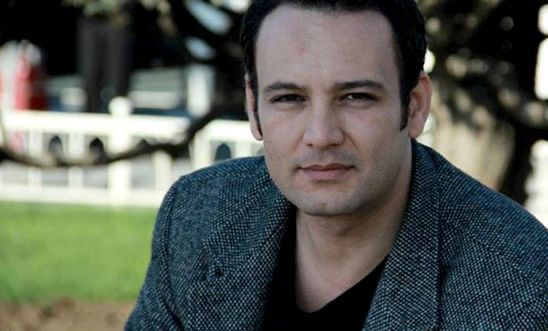The Battle of Preserving Liberty: In Conversation with Mazen Darwish
- Nour Kachi

- Jul 1, 2024
- 18 min read
Updated: Jun 27, 2025
Mazen Darwish is a Syrian Human Rights lawyer, freedom of expression activist and the president of the Syrian Centre for Media and Freedom of Expression. He was arrested in 2012 by the intelligence forces in Syria along with fifteen other journalists, one of whom was his wife Yara Bader. During his imprisonment he was subject to a forced disappearance and his whereabouts were unknown. Following his release and escape from Syria, Mazen has continued to advocate for freedom of expression in Syria by representing the victims of the Syrian Revolution and giving them a chance at justice.
CJLPA: Good afternoon, Mr Darwish. It’s an honour to have an opportunity to interview you for The Cambridge Journal of Law, Politics, and Art. Throughout the last few decades you have been an inspiring figure, defending the human rights of all Syrians around the world. Much of your work has revolved around protecting freedom of expression for Syrians. What was your motivation to start practising in human rights knowing that the Syrian regime is quite oppressive when it comes to freedom of expression?
Mazen Darwish: Thank you very much. It’s a pleasure and honour to be with you. First of all, I want to start with my family, because both my father and my mother were detained and disappeared. This is something I was born into; seeing this situation and how it affected the families and all the civilians in Syria. For me, freedom of expression is a basic right that any society needs to have to build a democracy and all other freedoms. It’s an essential right, especially in a regime like the one in Syria, where a lot of people are detained and are suffering for expressing their opinion.
CJLPA: Can you tell us more about why your parents got detained?
MD: For their opinions, actually; both of them acted as political opposition in different parties or groups. This is not something special, a huge number of families or Syrians were detained because of their opinion in general. This is something that always happened in Syria, even before 2011. Again, this is a dictatorship regime, Stalin style. This regime tries to build the people from childhood, through propaganda, to have the same view, same enemy, same opinion. One opinion and one ideology. This is a part of the regime and how they control the people. If anyone tries to think about other opinions, about other ideologies, about other lifestyles, they are treated like they are destroying the regime itself.
CJLPA: When we spoke to Anwar al-Bunni about the legal justice system in Syria, he mentioned how there isn’t such a thing as a legitimate legal system in Syria. Can you tell us more about your time working within the Syrian legal system and the challenges you had to face representing clients in Syria?
MD: We need to put in consideration that the country from 1963-2011 was under emergency law. If we go to the Constitution, or if we go to the criminal law, criminal code, or the code for criminal procedure, in general, there are a lot of good words or good articles. The problem is that it is used in an impractical way. Since 1963, especially the Security Service, they have had a legal excuse to not use the law, to act above the law. They don’t need to have a warrant from any jurisdiction to arrest someone. They don’t have in the procedural law a legal limit to keep someone under investigation before sending him to the court. Due to the emergency law, legally, they are free to do what they want. They don’t have any limit. Some people stay 24 years, I know them, without being listened to by any judge or court due to the emergency law. This is the situation in Syria. We need to understand that this is an environment where maybe there is a legal code or some articles in the Constitution to protect the freedom of the people, but the reality is that we also have the emergency law, which gives all the authority to the Security Service or to the police.




